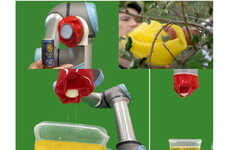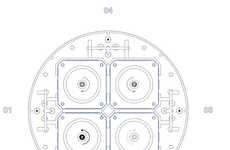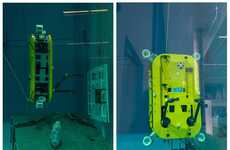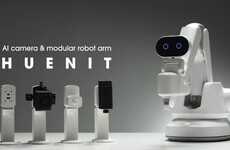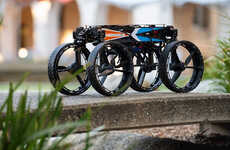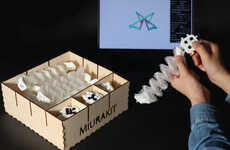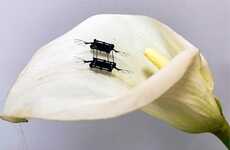
This Robotic Tentacle Moves Like a Real Octopus Tentacle
Rahul Kalvapalle — October 16, 2015 — Tech
References: mediarelations.cornell.edu & gizmag
A group of scientists and researchers over at Cornell University have developed a highly agile robotic tentacle that is set to open up whole new applications and possibilities in the field of robotics. This 3D-printed device offers a truly unprecedented level of agility, and was constructed using easily commercially available materials.
In order to create the rubbery robotic muscles, the developers created their own method for 3D printing soft actuators that mimic the function of octopus tentacles. This artificial muscle is capable of covering a complete 1800 degree of motion.
This robotic tentacle could be integrated into a wide array of robotic systems. Various robots are being developed for use in industrial, educational, military and other environments, and this robotic tentacle stands to benefit robots working in different settings.
In order to create the rubbery robotic muscles, the developers created their own method for 3D printing soft actuators that mimic the function of octopus tentacles. This artificial muscle is capable of covering a complete 1800 degree of motion.
This robotic tentacle could be integrated into a wide array of robotic systems. Various robots are being developed for use in industrial, educational, military and other environments, and this robotic tentacle stands to benefit robots working in different settings.
Trend Themes
1. Highly Agile Robotic Tentacles - The development of highly agile robotic tentacles offers disruptive innovation opportunities in areas such as industrial automation, prosthetics, and exploration.
2. 3D Printing Soft Actuators - The advancement in 3D printing soft actuators opens up disruptive innovation opportunities in fields such as medical robotics, assistive technologies, and underwater exploration.
3. Integration of Robotic Tentacles - The integration of robotic tentacles into various robotic systems creates disruptive innovation opportunities in industries such as logistics, agriculture, and space exploration.
Industry Implications
1. Robotics - The robotics industry can benefit from the disruptive innovation opportunities offered by highly agile robotic tentacles.
2. Medical - The medical industry can explore the potential of 3D printing soft actuators in creating advanced prosthetics and medical devices.
3. Exploration - The exploration industry can utilize the integration of robotic tentacles for advanced exploration and research missions.
2.5
Score
Popularity
Activity
Freshness


